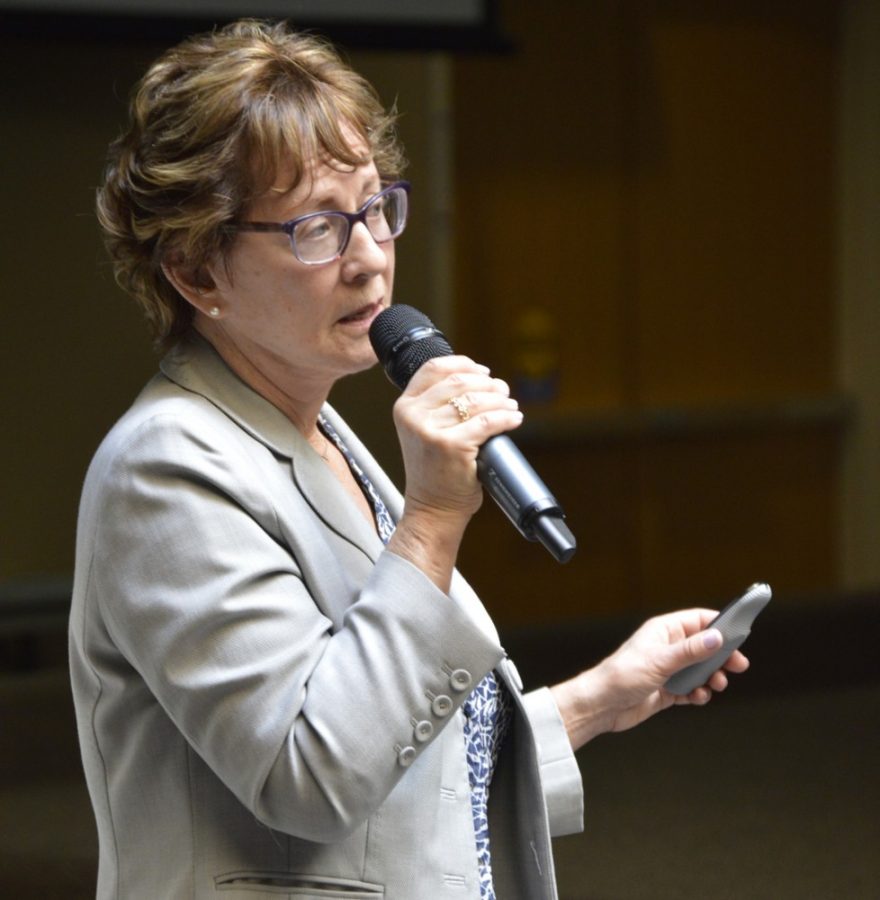An expert in cult dynamics held workshops for faculty, staff and students to answer questions and address issues about cults on campus at the UA on Monday.
“As you all are very well aware, the university has received some publicity around some concerns related to Faith Christian Church and its affiliated student clubs and organizations,” said Kendal Washington White, assistant vice president for Student Affairs.
White said that as an institution of higher education, the UA’s goal is to provide education for its faculty, staff and students.
“I’m here on campus so that you’re aware that cults still exist, that it can happen in any organization, no matter what type we’re talking about,” White said. “It could be fraternities and sororities, social groups, honoraries, because we’ve seen some of these kinds of behaviors in all kinds of groups — and to let you know that they are still here and that it’s not something that’s from the ’60s and ’70s and no longer something we have to deal with.”
Doni Whitsett, social working clinical professor and associate director of faculty development for the University of Southern California, said no one joins cults. She said people join organizations, clubs, religious groups and therapy groups. Whitsett said vulnerable people, particularly college freshmen and seniors, are susceptible to joining organizations with cult dynamics.
“Pretty much anybody, at a particular point in their life, is vulnerable to cult indoctrination,” Whitsett said. “The thing is, the cult comes along, and if you’re in the wrong place at the right time, it’s a perfect storm.”
Whitsett said cult organizations provide answers for many of the questions vulnerable people, or people in crisis or in transition, may have. She also said cults often appear to fill the “normal needs” people have, such as the need to have a sense of belonging and security.
In response to questions asked by staff members, Whitsett gave suggestions about how to deal with students who may be involved in a high demand group. She said, when talking to these students, it is important not to criticize the group they are part of or express anger or frustration with the situation.
“I hear you guys struggling a lot with what we struggle with, which is, ‘What can we do?’” Whitsett said. “There are no hard and fast answers, and that’s the problem. If you can raise people’s awareness, raise people’s critical thinking, that’s a lot of it.”
Whitsett said it is important to raise questions and discuss doubts with a student who has gotten involved in an organization with cult dynamics. She said it is important to note any contradiction or discrepancies you find when having these discussions. Whitsett also said maintaining open lines of communication with these students can be beneficial.
“My takeaway is that if you teach people critical thinking, executive function skills, self-regulation, then they would be less vulnerable for cults and all the other things we have to work with with students,” said Spencer Gorin, health educator for Campus Health Service, “whether [it] is alcohol overconsumption, whether it’s relationship violence, that there’s still this piece about executive function, learning how to think, learning how to self-regulate.”
Gorin said he is concerned about cults as someone in the UA community, and that this is an issue that can come up within many areas. He said he is not sure how to deal with cult-related issues, other than from a preventative perspective.
“We arm students with better capability to think for themselves,” Gorin said. “I think then they’re able to make these decisions on their own.”
_______________
Follow Brandi Walker on Twitter.









